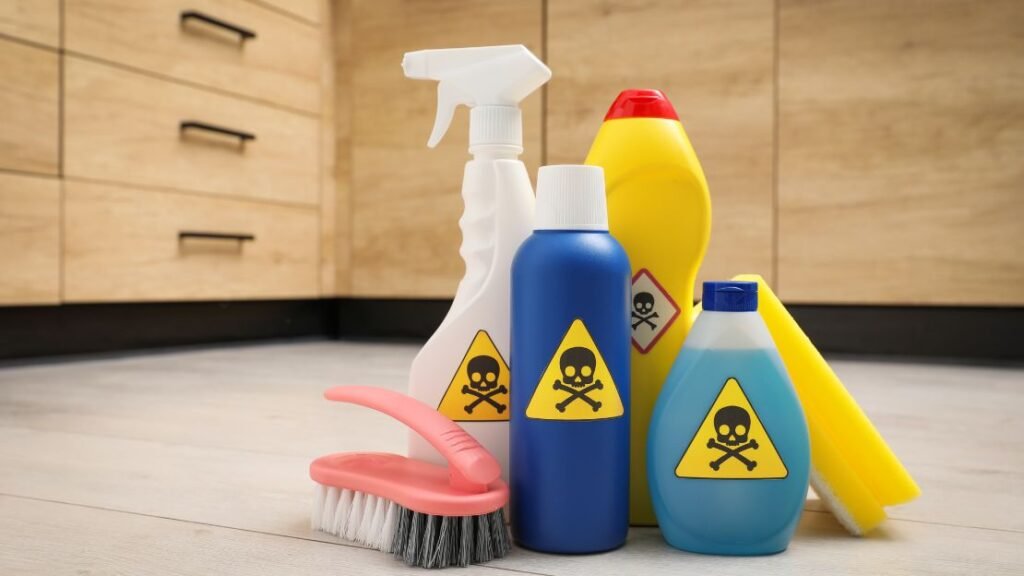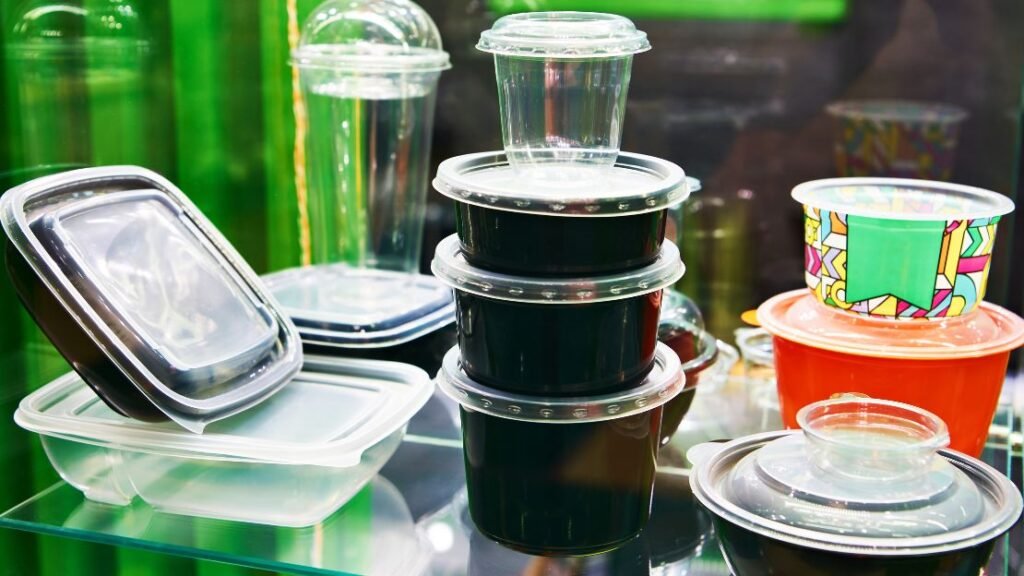
The thyroid is a small gland that plays a big role in controlling bodily function. This butterfly-shaped gland produces hormones that regulate the way your body uses energy, affecting everything from your heart rate to your mood. Having too much or too little of these essential hormones can negatively impact your health.
When your thyroid produces too much hormone, it causes many of the functions in your body to speed up. Called hyperthyroidism, this condition causes symptoms like restlessness, anxiety, increased sweating, weight loss, and irritability.
Hypothyroidism is essentially the opposite. Your body doesn’t produce enough thyroid hormone and it causes bodily functions to slow down. Common symptoms include fatigue, dry skin, constipation, weight gain, and memory or mood problems.
Either of these conditions can be caused by numerous factors, including genetics. But what many people don’t realize is that environmental factors can play a role in the development of thyroid issues as well. The products you use, the food you eat, and even the air you breathe on a daily basis can affect your thyroid function.
In this guide, we’ll focus on ten of the surprising everyday items that could be negatively affecting your thyroid health. From shampoo and cosmetics to cookware, cleaning products, and more, you’ll learn how to make smarter choices to protect your thyroid health.
#1 The Toxic Truth About Shampoo

When you walk into the personal care aisle at your local grocery store or pharmacy, you’re presented with an overwhelming array of options. Shampoo and other hair care products come in an endless variety of fragrances with all kinds of additives designed to impart shine, reduce tangles, or improve hair health.
Unfortunately, many of the products available to clean your hair aren’t quite so clean themselves. Hair care products often contain chemicals called endocrine disruptors which can interfere with your body’s production of natural hormones.
Here are three potentially harmful hair care ingredients to avoid:
1| Sulfates – A class of chemical detergents, these are the ingredients that cause hair care products like shampoo to foam up. Sulfates like ammonium lauryl sulfate, sodium laureth sulfate (SLES), and sodium lauryl sulfate (SLS) can strip your hair and scalp of its natural oils and cause irritation. More concerning, however, they may act as endocrine-disrupting chemicals, causing your body to make too much or too little of key hormones like thyroid hormone.
2| Parabens – These are chemical preservatives added to hair care products to improve their shelf life. Parabens are also known as xenoestrogens and they have the potential to disrupt your body’s natural hormone balance in addition to causing skin irritation.
3| Synthetic Fragrance – Artificial fragrances make your shampoo (and your hair) smell good but they could be harming your skin and your health in the process. The trouble is manufacturers are allowed to use the word “fragrance” on their products without naming the chemicals that go into it. You simply don’t know what you’re putting on your body.
What to use INSTEAD
Generally speaking, it’s best to avoid shampoo and other hair care products that contain synthetic fragrances. Check the label to see if the product is paraben-free and to make sure it doesn’t contain sodium lauryl sulfate. Don’t assume that because something is labeled “all-natural” it is completely safe.
Here are a few thyroid-friendly shampoo brands to consider:
Avalon Organics Therapy Thickening Shampoo
– Infused with biotin and B-complex vitamins, this organic shampoo is free from synthetic fragrances and other harmful chemicals.
Acure Ultra Hydrating Shampoo
– This 100% vegan shampoo formula is packed with hydrating ingredients but free from parabens, sulfates, and other endocrine-disrupting chemicals.
Jason Dandruff Relief Treatment Shampoo
– Kiss that dry, itchy scalp goodbye with this all-natural scalp care shampoo.
#2 The Kitchenware Conundrum

For many people, it has become second nature to check the list of ingredients on a product before buying. It just makes sense with personal care products you put on your skin. But what about the things you put in your body?
Surprisingly, we’re not even talking about food. We’re talking about the cookware you use to prepare your food. Certain materials or coatings used in common kitchenware could disrupt thyroid function and contribute to health issues like hypothyroidism and hyperthyroidism.
Here are two common culprits:
1. Nonstick Cookware – Commonly abbreviated as PFAS, per- and poly-fluoroalkyl substances are often used in nonstick cookware and water-resistant clothing. These synthetic chemicals were discovered in the 1930s and eventually
came to be used in Teflon cookware. The FDA has since identified over 12,000 kinds of PFAS and they came to earn the nickname “forever chemicals” because they do not break down in the environment. Potentially harmful effects vary from one formula to another, but PFAS chemicals have been linked to thyroid disease, ulcerative colitis, and numerous cancers.
2. Aluminum Cookware – Though marketed as toxin-free, cooking with cheap aluminum cookware or even using it to prepare certain dishes can allow small amounts of this heavy metal to leach into the food. Avoid using uncoated aluminum pans and don’t use it to cook leafy greens or acidic foods which are the most likely to absorb aluminum.
What to us INSTEAD
If you want to avoid having potentially harmful substances leaching into your food, stick to inert and non-porous materials. Some of the safest options are stainless steel, ceramic, and cast-iron. You can even find glass cookware, though this comes with a higher risk for breakage.
#3 Cosmetics and Thyroid Health

Every year, somewhere between 4,000 and 6,000 new chemicals are produced and used in the formulation of cosmetics and other household products. The majority of these chemicals are untested for human safety. Of the chemicals with known negative health effects, many are classified as thyroid-disrupting chemicals (TDCs) or endocrine-disrupting chemicals.
Thyroid-disrupting chemicals can become concentrated in the blood. They damage hormone receptors in the body, preventing them from doing their jobs. In addition to hindering brain development, TDCs have been shown to cause low circulating levels of thyroid hormone.
Here are four thyroid-disrupting chemicals to avoid in cosmetics:
1. Phthalates – Referred to as plasticizers, phthalates are a class of chemicals used to make plastics more durable. They’re commonly found in hair spray, nail polish, facial cleansers, and hair care products and have been linked to endocrine disruption.
2. Oxybenzone-Typicallyfoundinsunscreensandotherproducts with SPF, oxybenzone is a UV filter that has been shown to have hormone-disrupting properties. Other chemical sunscreens that may have hormone-disrupting effects include homosalate and octinoxate.
3. Parabens-Alsocommoninhaircareproducts,parabenscanbe absorbed through the skin via cosmetics. They’re typically used as preservatives in makeup and other personal care products.
4. Triclosan – Used as an antimicrobial agent, triclosan has been associated with altered thyroid hormone levels and the development of antibacterial resistance. Though antiseptic face wash products containing triclosan were banned in 2017, you may still find this ingredient in other products like wipes and hand sanitizer.
What to use INSTEAD
If you’re not sure whether an ingredient in your shampoo is harmful, you can always check the International Nomenclature of Cosmetic Ingredients (INCI). This is simply a list that breaks down the ingredients cosmetics manufacturers use in their products. You can search for a specific ingredient or take advantage of online tools that analyze the ingredients in specific products.
Here are 3 thyroid-friendly cosmetic brands to consider:
Mineral Fusion
– Shop a wide range of products from cosmetics to skincare, all of which are hypoallergenic, vegan, and cruelty-free.
Beautycounter
– Offering everything from facial oil to deodorant, this cosmetics company uses all-natural, climate- friendly ingredients free from harmful toxins.
Ogee Cosmetics
– This brand offers a range of organic cosmetics and beauty products from lip oil sticks to face masks.
#4 Household Cleaning Products and Thyroid Function

Keeping your house clean is essential but you could be doing more harm than good if you use the wrong cleaning products. Chemical cleaning products get the job done but they may leave behind toxins that can accumulate in your bloodstream and contribute to long-term health problems. They may even disrupt thyroid hormone production.
Some toxic cleaning chemicals to avoid include:
1. Ammonia – A very corrosive chemical, ammonia can cause burning of the eyes and respiratory tract. In toxic levels, it may also act as an endocrine-disrupting chemical.
2. Chlorine – Commonly found in chlorinated bleach, chlorine can cause nose, throat, and eye irritation when inhaled. It is particularly dangerous when combined with ammonia because it forms a toxic gas called chloramine. High levels of chlorine in the body, combined with low iodine levels, can negatively impact your thyroid function.
3. Glycol Ethers – Often used as a solvent or a surfactant, you’ll see these chemicals on the ingredients list as glycols or nonionic surfactants. In addition to having negative effects on fertility, these chemicals may increase the effects of endocrine- disrupting chemicals.
4. Bisphenol A – Also known as BPA, this chemical is common in plastic-based cleaning products and has been linked to impaired thyroid function.
5. Triclosan – Abbreviated to TCS, triclosan is an antibacterial and antifungal agent like parabens which helps increase the shelf- life of products. Even short-term, low-concentration exposure to triclosan was linked to hypothyroidism in rat studies.
What to use INSTEAD
Instead of using chemical cleaning products, stick to natural, thyroid- friendly alternatives. A simple combination of vinegar and baking soda works wonders to remove stains while an equal combination of vinegar and water makes a great all-purpose cleaner. You can always add pure essential oils to your natural cleaning products to give them a pleasant fragrance.
#5 The Water You Drink

If you use tap water to drink, wash dishes, or bathe, you may be exposing yourself to harmful contaminants. Public water safety is regulated by the U.S. Environmental Protection Agency (EPA) but sometimes unsafe levels of water treatment chemicals and germs make their way into the drinking water that gets piped into your home.
Some potential contaminants in drinking water may include:
1. Chlorine– Added to kill bacteria and viruses in water, chlorine can react with organic particles found in tap water to form toxic chemical compounds like trihalomethanes.
2. Fluoride – Commonly found in soil and groundwater, fluoride is often added to public water to help prevent tooth decay. The EPA states that fluoride levels over 4 ppm can be hazardous, contributing to neurological, cardiovascular, and reproductive issues.
3. Heavy Metals – One of the most dangerous heavy metals found in drinking water is lead because it accumulates in the body over time and can cause devastating health effects.
Safe Drinking Water Solutions
One of the best ways to protect yourself at home is to use some kind of water filtration system. If you have a private well, it’s your responsibility to have it tested regularly and treated, if needed, to make it safe.
Whether it’s a pitcher-style water filter or a whole-home system, check for an NSF certification on the label. NSF International is an organization that develops public health standards for consumer products—the NSF database will help you determine what a certain filter is effective in protecting against. Reverse osmosis is one of the most effective filtration options.
Another option is to drink bottled water at home. This option comes with some environmental concerns, however, so do your research to find a sustainable brand.
#6 Electronics and EMFs

You’re probably already aware of the potential issues with blue light—the wavelength of light produced by electronic devices like your smartphone. It can suppress the release of melatonin, a hormone that helps regulate your circadian rhythm.
Aside from contributing to sleep troubles, prolonged exposure to electromagnetic fields (EMFs) produced by electronic devices can affect your thyroid health. Studies involving the effects of EMF date back to the 1980s when daily use of electronic devices was less common. While modern research is ongoing, recent findings suggest that prolonged EMF exposure may contribute to increased levels of oxidative stress which can negatively affect thyroid health.
Many modern studies are focused on cell phone use with symptoms ranging from changes in heart rate and blood pressure to mood changes and cognitive issues.
Tips For Reducing EMF Exposure
The key to reducing your exposure to electromagnetic fields is to unplug from wireless devices. It’s unrealistic to completely change over to corded devices, but something simple you can do to protect yourself is to unplug wireless devices when they are not in use.
Turn off your WiFi router when you go to bed at night and keep any wireless devices at least 8 feet away from your head while you’re sleeping. Work with your laptop on a desk or table, not directly on your lap. After sending a text or completing a call, place your cell phone at a distance from your body instead of keeping it close by.
#7 Thyroid Health and Indoor Air Quality

Many of us make conscious choices about the food we eat and the products we use. But you can’t always control the air you breathe. Air pollution is a key contributing factor to chronic health problems—it can negatively affect nearly every organ and system in the body.
While you can minimize your exposure to pollution by limiting your time outside or wearing protective clothing and products, don’t forget to consider the quality of the air you breathe indoors. Common indoor air pollutants have the potential to disrupt healthy thyroid function by triggering oxidative stress and inflammation.
Some common thyroid-affecting indoor air pollutants include:
1. Volatile Organic Compounds (VOCs) – These are gasses emitted by a wide range of products including cleaning products, cosmetics, paints, furnishings, and more. Short term exposure to VOCs may cause eye, nose, and throat irritation while long- term exposure can cause damage to the internal organs and systems of the body.
2. Mold – Mold produces mycotoxins which can have a direct negative effect on the thyroid gland. Mold exposure has been shown to increase the risk of Hashimoto’s thyroiditis, an autoimmune form of hypothyroidism.
3. Tobacco Smoke – While the link between tobacco smoking and impaired thyroid function is still being studied, smokers appear to have a higher risk of hyperthyroidism. Tobacco smoke contains thiocyanate which inhibits the uptake of iodine by the thyroid gland and impairs the production of thyroid hormones.
Tips To Improve Indoor Air Quality
If you’re a smoker, research suggests that quitting can help reverse some of the negative thyroid health effects. Little is known about the impact of vaping on thyroid function, but any vaping product that contains tobacco is likely to have a negative effect.
To improve the quality of the air in your home or office, consider investing in a portable air purifier. Shop for an air purifier rated for the size of your room and place it near the most likely source of indoor air pollution. If you don’t have the budget to put one in every room, place it in the room where you spend most of your time.
Be sure to purchase an air purifier with a HEPA filter. Charcoal filters may help eliminate odor from tobacco smoke and pets. Keep the purifier running at all times, if possible, and point it in your direction to gain the maximum benefit.
#8 Hidden Dangers In Food Packaging

Not only can the cookware you use to prepare your food contain thyroid- damaging chemicals, but so can the packaging your food is stored in. Two of the biggest culprits are BPA and phthalates, chemicals we’ve covered in previous sections.
As a reminder, BPA or Bisphenol A is an industrial chemical widely used in plastics like water bottles and food containers. It’s also used to line food and soda cans to prevent corrosion. Because it’s been identified as an endocrine disruptor, BPA has been removed from many products but substitutes like Bisphenol S (BPS) and Bisphenol F (BPF) may be toxic as well—there just isn’t much data on these chemicals yet.
Phthalates or plasticizers are commonly used in food packaging films and can make their way into food products. They’re also found in containers made from PVC. You can identify PVC containers easily because they’ll carry the recycling label #3.
What To Use INSTEAD
To protect yourself from thyroid-damaging chemicals in food packaging, choose glass containers or BPA-free plastics. One way to do this while reducing costs is to buy staple foods in bulk and bring your own reusable glass or ceramic containers. Shopping organic is a good option as well, but may be more expensive.
When it comes to beverages, opt for unlined stainless steel or glass bottles instead of plastic. For soda, you can purchase your own soda machine to use at home or simply make sure the cans or bottles you buy are BPA-free.
#9 Furniture and Thyroid Health

When you come home at the end of a long day, all you want to do is flop down on the couch and relax. Unfortunately, this activity may not be as safe as you think—especially if your couch is made from certain materials that contain thyroid-disrupting chemicals.
Two materials you should be wary of are particle board and polyurethane foam. Particle board is a manufactured wood product that consists of compressed wood chips. It often contains chemical binders like urea formaldehyde (UF) and phenol formaldehyde (PF), both known endocrine disruptors.
Polyurethane foam may contain numerous potentially harmful substances including VOCs, methyl chloride, and isocyanates used as flame retardants. Flame retardants like polybrominated diphenyl ethers (PBDEs) are widely used in foam cushions and have been shown to disrupt hormone- controlled processes in the body.
What to use INSTEAD
When shopping for furniture, think about the construction as well as the aesthetics. Choose natural wood over compressed wood products and look for low-VOC materials. Some brands that offer sustainable, non-toxic furniture include Avocado, Medley, TFS Home, and Sabai.
#10 Mattresses and Sleep Quality

The thyroid health concerns with mattresses are similar to those with furniture. In fact, the risk may be higher because you’re likely to spend more extended periods of time using a mattress than a single piece of furniture.
Mattresses are often made with polyurethane foam or other materials treated with flame retardants. Not only can these materials contain endocrine-disrupting chemicals, but the off-gassing of these chemicals can affect your sleep quality. Poor sleep is a common symptom of thyroid issues because your thyroid hormones help regulate physiological processes including sleep.
If your thyroid is producing too much thyroid hormone, you may struggle to sleep due to anxiety, night sweats, or an overactive bladder. If you have hypothyroidism, on the other hand, your sleep troubles could be related to joint or muscle pain and taking a longer time to fall asleep.
What to use INSTEAD
To protect your thyroid health, choose a mattress made from organic or natural materials. Latex, for example, is a natural alternative to polyurethane foam; it offers similar cushioning and supportive benefits. Bamboo is another good option.
When shopping for a mattress, look for certifications that indicate safe, quality materials. In order to carry a CertiPUR-US label, for example, the product needs to be free from formaldehyde, flame retardants, and phthalates, and have low VOC emissions. Other certifications apply to specific materials like the Global Organic Latex Standard (GOLS) for latex and the Global Organic Textile Standard (GOTS) for natural organic fibers.
Conclusion
If you’ve been feeling run down and depressed lately or plagued by digestive issues, memory problems, or joint pain, your thyroid may not be producing enough thyroid hormones. Conversely, if you’ve been feeling shaky, nervous, or restless and troubled by irritability, increased appetite, or unexplained weight loss, it could be hyperthyroidism.
While some causes of thyroid issues are genetic or otherwise outside of your control, the choices you make in your everyday life could be making matters worse.
Harmful chemicals found in cleaning products, cosmetics, and hair products can disrupt thyroid function by mimicking thyroid hormones. Contaminants in the water you drink, the air you breathe, and the furniture in your home could damage your thyroid. There may even be hidden thyroid disruptors in your life, like electronics, chemicals in food packaging, and coatings on your kitchen cookware.
The first step in protecting your thyroid health is to learn about the risks. Using this guide as a stepping stone, you can start making smarter, more thyroid-friendly choices in your daily life.
References: (1) (2) (3) (4) (5) (6) (7) (8) (9) (10) (11) (12) (13) (14) (15) (16) (17)



